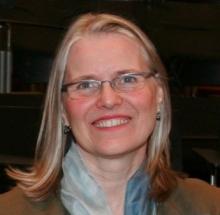What Is It
According to Corinthians 13, “Love is patient, love is kind and envies no one.” But is love always unconditional? Should it be? If unconditional love means that we love no matter what our beloved’s actions or traits are, doesn’t that suggest we should love everyone in this way? If not, how do we select just a few to love unconditionally? Perhaps the feeling we reserve for those we cherish most in the world is better described as selfless rather than unconditional love, in which case we are confronted with another challenge. What happens when our beloved changes radically and loses the very features that caused us to love in the first place? John and Ken talk unconditionally with Lynn Underwood, editor of The Science of Compassionate Love: Theory, Research and Applications.
Listening Notes
Unconditional love is rare and difficult, opens John. But, asks Ken, what about parental love? Or romantic love? When unconditional love happens, it’s a beautiful thing! We all want somebody who will love us as time goes by. But isn’t eternal love different from unconditional love, asks John? Unconditional love is the highest form of love, says Ken – most religions recognize this too, hence why they attribute unconditional love from man to God. If God existed, says John, then unconditional love would be easy for him/her, given the corresponding infinite patience and ability to forgive. But humans are not like that. We get hurt. We get disappointed. And these two facts can kill even the seemingly most enduring love. Well, sustaining unconditional love is surely a difficult thing, admits Ken. But being the recipient of such love is undeniably a good thing. John is not so sure of this. People want to be loved for who they are and what they do! But just because you love somebody unconditionally doesn’t mean you don’t care about these factors, argues Ken. When you love unconditionally, you want people to be their best self. But, says John, what about bad behavior that goes unspoken, say, with domestic abuse and the often-occurring inability to let go of an abusive partner? That would be self-destructive love, replies Ken. So is unconditional love equivalent to selfless love for Ken? If so, the self gets in the way for most people; Ken disagrees with John’s realism, and the duo continue their lovely conversation.
John and Ken welcome guest Lynn Underwood, Professor of Biomedical Humanities at Hiram College, Vice President at the Fetzer Institute, and co-editor of The Science of Compassionate Love and Altruism and Altruistic Love. John asks Lynn what the most surprising thing she has found about unconditional love in her research is. Lynn explains a study done on newlyweds to predict the longevity of the marriage. People were very aware of the failings of their spouse in the beginning stages of the study, and indeed longevity was predicted by combining this awareness of failings with the unconditional love they each felt. Ken brings up that parental love is often considered a form of selfless love, but even there, the child is connected to the parent, i.e. a reflection, to some extent, of the self. And in the example with the newlyweds, the reciprocity is one of the main factors sustaining the marriage. So are either of these types of love selfless? Lynn brings up adoption – why do people adopt? People care for children who they did not give birth to, which is probably quite a selfless thing to do.
Lynn, John, and Ken welcome questions from the audience, and they continue the discussion by tackling questions such as: how unconditionally should one love? Where does love for oneself lie along the spectrum of unconditional love, and how can we balance it with love for others? The conversation resumes. Lynn is asked about balancing care for the self with care for others – but what of cases like the loving reaction of a battered spouse towards her abuser? What are the limits of unconditional love in light of such situations? In cases like these, we wonder whether unconditional love – or is it ideal love? – is a good thing or whether it is deeply problematic. Lynn thinks unconditional love is, generally speaking, a good thing which can strengthen us and improve our quality of life. Problems happen when one is facilitating something which is not for the good of someone else.
- Roving Philosophical Reporter (Seek to 5:40): Philosophy Talk's Reporter Caitlin Esch explores some of the stories presented in Far From the Tree, the book by Andrew Solomon about the unconditional love accompanying children who are different, children who have autism, schizophrenia, or dwarfism.
- 60-Second Philosopher (Seek to 48:51): Ian Shoales speeds through the history of the love lives of philosophy’s greatest, from Socrates to Hannah Arendt.




Comments (1)
rosiewilsonnsjh
Tuesday, January 16, 2024 -- 10:47 PM
The conversation you'veThe conversation you've shared explores the complexities of unconditional love and its various forms, such as parental love and romantic love. It delves into the idea of eternal love and the challenges of sustaining unconditional love in the face of human Connections Game imperfections.